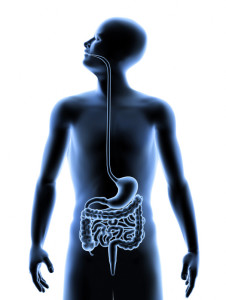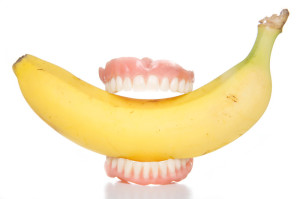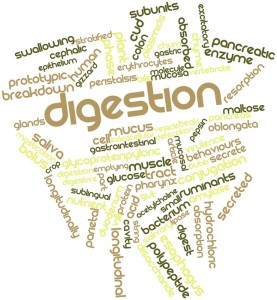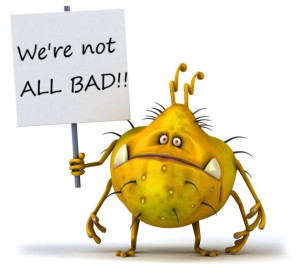The Human Digestive System

© Can Stock Photo
Here is a quick tour of the human digestive system. Knowing how it works can help you understand what’s going wrong, and THAT can be the key to getting it fixed!
Note that the digestive system is incredibly complex. We’re not going into deep detail here. This is just what you need to know to understand your irritable bowel syndrome. See “What is IBS” or find out more about “IBS symptoms“.
What is Digestion and Why is it Important?
The human digestive system does the amazing job of taking food and breaking it down into the basic building blocks (nutrients) you need to survive. It then allows these nutrients to pass into your blood stream.
Your body takes the nutrients and uses some of them to build or repair your body. Other nutrients are turned into energy, or (gasp!) stored as fat.
How it All Begins
The moment you even start thinking about eating, your digestive system is gearing up to process the next meal. That’s why your mouth waters when you’re thinking of that delicious steak (or in my case a doughnut). See more about fatty foods and IBS.
This is important to know for people with irritable bowel syndrome, because sometimes just thinking about eating can get the digestive tract churning, and that can set off your IBS.
Why Teeth are Important

© Can Stock Photo
You may not think of teeth as part of the human digestive system.
But your teeth start the job of breaking down food so you can digest it. This very important job is often where problems can begin.
If you don’t chew your food enough, it won’t digest very well. If the food isn’t digested by the time it reaches your large intestine, it can cause trouble; such as yeast or bacterial overgrowth.
Why Spit Matters
Sorry. I couldn’t resist the title.
That watering in your mouth I mentioned above comes from the salivary gland under your tongue.
The saliva plays an important part in breaking down starches like bread, potatoes, rice, etc. These can be an excellent energy source, but can cause major problems if they are not digested properly.
Saliva also makes food easier to swallow.
Down the Hatch
When you swallow, your food travels down your throat into a tube called the esophagus. The esophagus is ringed with muscles that squeeze the food down toward the stomach (this squeezing action is called peristalsis). At the end of the esophagus is muscle that keeps food and stomach acid inside the stomach.
If there are problems with that muscle and it doesn’t close properly, you can have problems with “heartburn” otherwise known as GERD (Gastroesophageal reflux disease).
For reasons as yet unknown, many people who have IBS also have GERD.

The Stomach
Once food is in the stomach, it is mixed with gastric juices including stomach acid. The stomach then churns and mixes the food and gastric juices together.
The gastric juices break down proteins. The stomach acid protects us by killing any bacteria in the food.
Note: It’s a common misconception that your food is only digested in the stomach. Most of the digestion takes place in the small intestine!
Which is the next stop on our tour…
The Small Intestine
Also called the small bowel, this is really one of the most important parts of the whole human digestive system. The small intestine is where most of the digestion and nutrient absorption takes place.
Digestion
At the beginning of the small intestine, the pancreas and liver add digestive enzymes and juices via small ducts. These digestive juices break the food down so that the nutrients can be absorbed.
The liver provides bile, which breaks down fats. Some people may be sensitive to having bile in their bowels, which may explain why eating fatty foods can set off an IBS attack.
As the food moves through the small intestines (again by peristalsis), it is mixed with the digestive juices, freeing the nutrients for…
Absorption
If you were to look at the surface of the small intestine with a microscope, you would see what looks like a shag carpet. The microscopic little string parts are call “villi.” The villi absorb the nutrients from the food so your body can use them.
Some diseases (like celiac sprue) or allergic reactions (particularly in children) can damage these tiny structures. When that happens, the food you eat isn’t absorbed into your body properly.
This can lead to malnutrition even when you’re eating a very healthy diet!
The Large Intestine
The large intestine is also known as the colon or large bowel.
When the small intestine is finished digesting and absorbing the food, the remaining waste (called fecal matter) passes into the large intestine. This waste has a lot of water in it.
One of the main jobs of the large intestine is to remove the excess water.
When fecal matter moves too slowly through the large intestine, it gets dry and hard. We call that constipation.
When fecal matter moves too fast through the bowel, the liquid doesn’t get absorbed properly. Which of course we call diarrhea.
If the large intestine has done its job properly, a normal stool reaches the rectum, and is passed out the anus without any of the problems.

© Can Stock Photo
They Have Us Outnumbered!
A note about some inhabitants of the human digestive tract. While the small intestine is usually sterile, the large intestine has an enormous amount of microorganisms.
Most of them are harmless to us. Many do important work for us, creating chemicals and vitamins that keep us healthy. That’s why we can have problems when we take antibiotics. Find out more about “good bacteria” known as probiotics.
While antibiotics can help us fight off the harmful bacteria from an infection, they also kill the good bacteria.
Amazingly there are more microorganism cells in your colon, than there are human cells in your whole body!
That’s the end of our tour of the human digestive system. Now let’s look at some causes of irritable bowel syndrome.
Return to Home from the Human Digestive System page.
Return to IBS Symptoms from the Human Digestive System page.